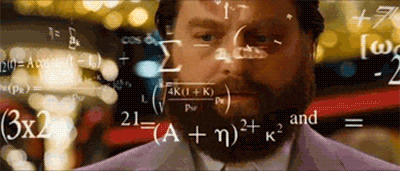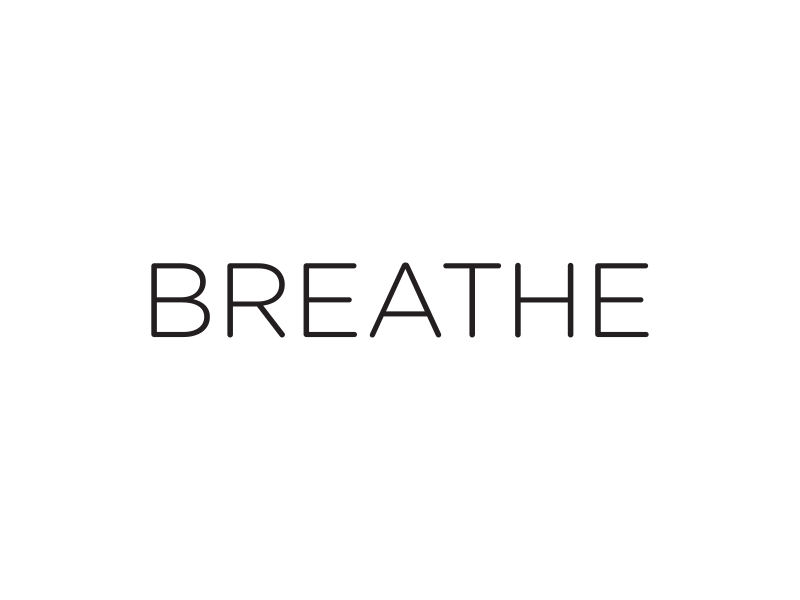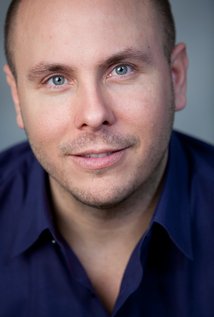An Interview with
Casting Director David O’Connor
How did you get into the industry?
Oddly, I got into Casting because I didn’t know how to work with actors. I was studying filmmaking and writing and I was planning on going off to direct and produce. LA was my goal in my youth. I had been wanting to get into this business since I was eight years old.
How do the on-going changes in technology affect actors in the industry?
It’s made it much better for actors who I think they are the biggest winners in the evolution of technology. It helps in regards to researching roles, understanding what is out there, researching directors, researching writers, commercial campaigns or trends on the internet; there is so much that you can educate yourself about. Actors can submit themselves for auditions so it’s made the world very small, and very fast. Up until 5, 10 years ago you weren’t seeing something online and submitting yourself on tape the next day. It is night and day from when I started and I was ahead of the curve on technology. Fun challenge keeping up now with the quickness of things.
What should actors look for as far as trends and what kind of adjustments should they make?
There are always trends. The entire world is driven by the advertising business and marketing. Other than creative ventures and artistic outlets for people, like people who are doing theater for theaters sake, it is a business and driven by the films, television and commercials. So it’s all business and economics and a lot of people who are in the arts, including myself when I started, say “Oh well it isn’t about the money.” No it isn’t but you have to UNDERSTAND the money and you need to UNDERSTAND the business. Some people succeed solely on their talent, and others because they understand how things work and keep up with the industry.
Trends apply to so many things. Style for one. There are actors who don’t care about their appearance sometimes, they don’t put much thought into it and you bring them in and it’s like, you don’t look anything like your headshot! You aren’t current, client’s sometimes can’t look beyond your initial appearance. I have seen people with no facial hair in headshots and walk in like a grizzly. I have seen people book jobs because of their haircuts and because of things they have worn and nothing based on their abilities which of course is it’s on insanity. Especially when you’re an actor training and you’re like “What about my craft?” My point is… sometimes it’s not the craft… it’s the trend. And remember to make that trend your friend.

When you get a project, do you always know exactly what you are looking for or do sometimes actors change your mind?
People have said casting directors are personal shoppers. I have to think for others, and then be creative on my own. I need to understand how to find people and what my creative’s are looking for. Chicago casting directors, for the most part, are very knowledgeable on many different types of casting. So it’s about really having a good understanding of what they are looking for and then you have to adapt yourself for that. So we get clarity, and then you can play with it. If the directors trust you enough, you can really play with it and just bring in people you know are talented and are going to come in and do something interesting with the role. In the advertising world it’s different, sometimes it’s driven more by the client or the creatives behind it, or driven by a look, or it’s driven by whatever vision they may have for it and I have to understand that and let them know what is realistic and what’s not. But there are plenty of times that when I see what they want it’s instantly narrowed down to 3-5 people in my head who are absolutely perfect before they audition. That just comes from experience and knowing Chicago’s acting community.
What is your biggest pet peeve in the audition room?
My biggest pet peeve is people not being responsible and informed and playing stupid. “I didn’t know” or “I wasn’t told”. It’s not your agent’s job to hand-hold you. It is your job to take control of your career and be a professional responsible adult. People come in constantly not knowing the shoot is out of town and they need a theater release. Which absolutely makes no sense. If the shoot is in California, how am I going to be able to give you a theater release? People dig their own holes sometimes with lies or being unorganized. Chicago is a very nurturing acting community where people are learning and studying their craft, but the business education is happening in my office sometimes, and it’s not my job to educate anyone. Each audition is a job interview. Come in like you want that job or don’t come in at all. We chose you for a reason, because we think you can do the role justice. My job is to present them at their best. It’s your job to go in there and land it. Listen and pay attention. Be prepared… and always bring headshots… you just never know. Don’t rely on technology or your agents to do the work.
How much does an actor have to dress for the part?
To a point, but you don’t have to overkill it. If you are getting called in for a business person you should come in looking good. If they say look “hip, casual and current” look that way, turn on the TV and watch some shows and commercials and see what’s going on. It used to be really difficult for actors to research specific shows and commercial clients: it’s not difficult anymore. It’s all on the internet. So yes absolutely, you shouldn’t come in looking like a schlub when you’re not supposed to look like schlub. But when we need the schlub, better to look and dress the part.

What is something you wish actors knew going into an audition?
What they are there for. What the role is. When does it shoot. Where does it shoot. How do I dress and do hair/makeup. What time is my audition. Do I need to know the script, copy, character. That if there is copy, yes, they should memorize it as much as possible to be more comfortable with the character and scene work without looking for words.
Additionally, I wish that every actor knew that they should just be informed. The biggest thing I can say here is listen to the people who know what they are talking about. Experienced people in the industry. Not people who act like they know everything. I didn’t know anything when I started, it wasn’t until three or four years of working on my own as a casting director that I started to feel comfortable about giving advice. Anyone who has ever worked for me knows that I’m always watchful of what they are saying if they are teaching or giving advice to anybody. This is because there is so much bad information given out there, so much misinformation that costs people time and money. Teachers are constantly educating themselves on the business so hopefully they are passing that onto their students. Really listen to people and teachers that know what they are talking about to get you ready for that audition.

What are you looking for when you ask an actor to improvise and should actors audition unprompted?
Great question. Using improv is very specific based upon the project. You can always ask “how much can I play with it?” Improvisation is so very very important on so many levels when working with a Director. They are seeing how adaptable you are, how much you understand the script, character and what you bring additionally to the role that isn’t on the page. This doesn’t mean rewrite the script and idea… just open it up and make it your own and understand the concept and idea behind what the role, scene, script, copy demands.
Do past auditions affect your opinion of an actor during their current auditions?
Absolutely. It plays into who we choose from the moment we put out a breakdown. We are very good at keeping notes. Hopefully actors are learning from every audition that they do. The thing is that most casting directors don’t have time to give feedback immediately. If there is feedback it’ll typically go to the agent who will follow up with the actor, but it’s rarely done. If I know them well enough and I think that they have something going, then I might jump in and give some advice like “check out iO and Second City, Annoyance for some improvisational tools, you’ve got great skills here, but some classes may help.
There are so many different types of actors out there, you could be a brilliant theater trained actor and have great instinctual improvisational chops. They may not be “funny” because improvisation isn’t just funny, it’s playing with something. A lot of people aren’t comfortable, they are nervous as hell coming in. When you are comfortable in any career, you are going to do better work. When you are stressed out and nervous about it, because you came in unprepared, you’re not going to do a strong performance and it’s all you. If I can get you in a good place to do a funny scene, that’s what will get you the callback and booked. Same note goes for more dramatic scene work as well. Just remember we want you to have as much range as possible. We learn quickly thru multiple auditions where you are strongest at. So yes, past auditions come into play.

Is there ever an instance, in which you see an actor, then call their agents and tell them you never want to see them again?
I probably have one of those every couple months. When it happens it’s typically due to disrespect of us as an office or an intern or an assistant or a session director. We care and work so hared at making it a professional experience and treat people with that respect. We know how hard it is to put yourself out there and commit to an audition. So we get upset when people are not professional. Chicago is such an amazing acting community, they don’t give attitude for the most part and they do their job. It’s a great blue collar work ethic that I love. So, there is a chance we may not see someone again because of a bad audition, but that is rare. If it’s repeated we won’t necessarily call their agent, we just won’t see them for awhile. And we will monitor if they are working on their craft and developing as a performer. And just because they were bad for one type of role, doesn’t make them bad for all roles.
So it takes a lot for us to pick up that phone and address not seeing someone again. Always remember that you never know who is listening and who will be the next person to hire you or give you your next break in this business. 25 years ago I would occasionally sit in waiting rooms when people didn’t know who I was, and I’d hear some negative things about me as a casting director. We’d banter back and forth so I’d get an idea if it came from other actors, or an agent, or just made up. People like to gossip… I’m not a fan. I also have a thick skin and can take criticism which only helped me in my career. Sometimes the performer I’d be sitting next to would say they’ve met me before and I did this or said that, which never occurred of course. Or they’d talk about other things to get into other actors heads, or brag. I even had people tell me that I cast them in something and I had never even heard of them. Always kind of blew me away that they would so freely bad mouth about something or someone they knew nothing about. Then I’d turn to them and say, “Ready to audition? I’m David O’Connor, happy to meet you, come on in.”
David O’Connor is the owner of and the Director of Casting for O’Connor Casting. David has cast for thousands of projects for the industry’s most respected directors, production companies and agencies.



